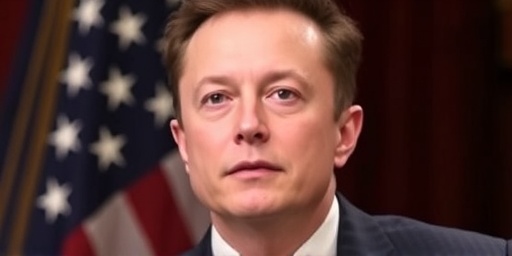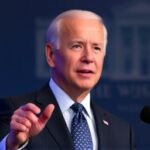In a electrifying live X Spaces discussion on Wednesday evening, Elon Musk dropped a bombshell that sent ripples through political and tech circles: he hinted at taking on a pivotal role in revamping federal spending under President-elect Donald Trump’s incoming administration. The Tesla and SpaceX CEO, known for his unfiltered takes on social media, suggested his involvement could target trillions in government waste, igniting fervent speculation about the so-called DOGE department’s transformative potential.
Musk’s comments came amid a broader conversation on economic policy and innovation, where he teased, ‘We’re going to make government efficient again – and fast.’ This nod to efficiency aligns with Trump’s campaign promises to slash bureaucracy, but Musk’s personal stake elevates the stakes, blending Silicon Valley disruption with Washington overhaul. As the world watches the transition to Trump’s second term, Musk’s tease positions him as a wildcard in reshaping how the U.S. government operates.
Musk’s X Spaces Reveal: A Vision for Radical Federal Overhaul
The X Spaces session, hosted on Musk’s own platform formerly known as Twitter, drew over 500,000 listeners in real-time, underscoring his massive influence in digital discourse. During the hour-long chat with policy experts and Trump allies, Musk delved into the inefficiencies plaguing the federal government, citing examples like outdated procurement systems and redundant agencies. ‘The U.S. government spends more than it needs to on everything from defense contracts to social programs,’ Musk stated emphatically. ‘With the right team, we can cut that fat without touching the muscle.’
This isn’t Musk’s first foray into public policy advocacy. The South African-born entrepreneur has long criticized regulatory hurdles faced by his companies, from Tesla’s autonomous driving approvals to SpaceX’s launch permits. In 2024 alone, SpaceX secured over $3 billion in NASA contracts, yet Musk has repeatedly called out bureaucratic delays that he claims cost taxpayers billions. His tease about a formal role under Trump builds on their growing alliance, which solidified during the election cycle when Musk endorsed the Republican candidate and donated millions to pro-Trump PACs.
At the heart of Musk’s remarks was the acronym DOGE – short for Department of Government Efficiency – a playful yet pointed reference to the Dogecoin cryptocurrency Musk famously championed. What started as a meme coin in 2013 has evolved into a symbol of Musk’s irreverent style, but in this context, DOGE represents a proposed task force aimed at auditing and streamlining federal operations. Musk quipped, ‘DOGE isn’t just a coin; it’s the future of smart governance.’ Listeners erupted in cheers, with the platform’s live chat flooding with memes and calls for ‘Musk for Treasury.’
To contextualize the scale, the U.S. federal budget for fiscal year 2024 exceeded $6.1 trillion, with mandatory spending on entitlements like Social Security and Medicare accounting for over 60%. Discretionary spending, which includes defense and education, adds another $1.7 trillion. Critics, including Musk, argue that at least 20-30% of this could be trimmed through technology-driven efficiencies, such as AI-powered fraud detection and blockchain for transparent contracting. Musk referenced Neuralink and xAI projects as models, suggesting similar tech could revolutionize government procurement.
Trump’s Endorsement: Aligning Tech Titans with Political Power
President-elect Donald Trump wasted no time amplifying Musk’s hints. In a Truth Social post shortly after the X Spaces, Trump wrote, ‘Elon Musk is a genius at efficiency – just look at what he’s done with SpaceX and Tesla. Excited to have him help Make America Efficient Again!’ This endorsement underscores a deepening partnership that began with Musk’s public support during the 2024 campaign, where he hosted rallies and used X to counter what he called ‘mainstream media bias.’
Trump’s vision for his administration has always emphasized deregulation and cost-cutting. During his first term from 2017-2021, initiatives like the Office of American Innovation aimed to modernize government IT systems, saving an estimated $1 billion annually. However, progress was hampered by congressional gridlock. Now, with Republican majorities in both houses, Trump has more leeway. Musk’s potential involvement could supercharge these efforts, particularly through DOGE, which Trump floated as an independent commission reporting directly to the president.
Historical precedents abound for private-sector leaders in government roles. Consider Steve Bannon’s early advisory position or Jared Kushner’s oversight of the coronavirus response. But Musk’s profile is unique: as the world’s richest person with a net worth surpassing $300 billion, his sway extends to global markets. Tesla shares jumped 4% in after-hours trading following the X Spaces, reflecting investor optimism about Musk’s dual role in business and policy.
Yet, questions linger about conflicts of interest. Musk’s companies rely heavily on government subsidies – Tesla has received over $2.5 billion in federal incentives since 2010, while SpaceX dominates NASA launches. Ethics watchdogs, including the nonpartisan Citizens for Responsibility and Ethics in Washington (CREW), issued a statement cautioning, ‘Musk’s involvement must be transparent to avoid undue influence on contracts benefiting his enterprises.’ Trump dismissed such concerns, tweeting, ‘Elon builds rockets; he doesn’t need handouts.’
DOGE Department Buzz: From Meme to Federal Mandate
The DOGE concept exploded in popularity after Musk’s tease, trending worldwide on X with over 2 million mentions in 24 hours. Originally a joke during Trump’s campaign – where he and Musk riffed on Dogecoin as a ‘people’s currency’ – DOGE has morphed into a serious policy proposal. Envisioned as a lean, tech-focused entity, it would deploy data analytics to identify waste, much like Musk’s ‘first principles’ approach at his companies.
Under DOGE’s potential purview, targets could include the $886 billion defense budget, where the Pentagon’s audit failures have been well-documented. In 2023, the Department of Defense failed its seventh consecutive financial audit, unable to account for $3.8 trillion in assets. Musk, drawing from SpaceX’s cost innovations – reusable rockets slashed launch prices by 90% – proposed similar disruptions. ‘Why pay $100 million for a satellite when AI can optimize it for $10 million?’ he asked rhetorically during the Spaces.
Supporters hail DOGE as a game-changer for government efficiency. Vivek Ramaswamy, Trump’s co-chair for the transition team and a biotech entrepreneur, echoed Musk’s sentiments in a follow-up interview: ‘Elon’s track record speaks for itself. DOGE will be the scalpel we need to excise bureaucratic bloat.’ Ramaswamy, who briefly ran for president, has advocated for eliminating up to 75% of federal regulations.
Statistics paint a stark picture of the inefficiencies DOGE aims to tackle. The Government Accountability Office (GAO) reports annual improper payments exceeding $200 billion, often due to outdated systems. Meanwhile, federal IT spending hit $100 billion in 2024, yet cybersecurity breaches cost an additional $10 billion. Musk’s xAI, valued at $24 billion, could provide the computational firepower, integrating large language models to automate compliance and forecasting.
Critics, however, warn of overreach. Senate Minority Leader Chuck Schumer called DOGE ‘a billionaire’s vanity project,’ arguing it could undermine essential services. Labor unions, representing 2.1 million federal employees, expressed fears of mass layoffs, with AFL-CIO President Liz Shuler stating, ‘Efficiency can’t come at the expense of American workers.’ Despite this, polls show public support: a recent Rasmussen survey found 62% of voters favor Musk’s involvement in cutting spending.
Market and Global Reactions to Musk’s Government Pivot
The financial markets reacted swiftly to Musk’s tease, with defense contractors like Lockheed Martin dipping 2% amid fears of contract scrutiny, while tech stocks, including Palantir and Oracle – known for government AI deals – surged. Analysts at Goldman Sachs projected that successful DOGE reforms could boost GDP by 1-2% through reduced deficits, potentially lowering interest rates.
Internationally, reactions were mixed. China’s state media labeled it ‘American tech imperialism,’ while European leaders like Ursula von der Leyen praised the efficiency focus but urged safeguards for transatlantic trade. In the crypto world, Dogecoin spiked 15% to $0.42, fueled by Musk’s meme affinity. ‘If DOGE becomes official policy, it’s rocket fuel for adoption,’ said crypto analyst Anthony Pompliano.
Musk’s history of bold predictions adds intrigue. In 2022, he acquired Twitter for $44 billion, rebranding it X to foster ‘free speech.’ Now, applying that disruptive ethos to government could redefine public administration. Experts like Brookings Institution fellow Darrell West note, ‘Musk brings a startup mentality to a sclerotic system – it could either innovate or implode.’
Looking Ahead: DOGE’s Path to Implementation and Lasting Impact
As Trump’s inauguration approaches on January 20, 2025, the DOGE initiative is slated for early executive action. Musk has signaled willingness to lead without a formal title, perhaps as a special advisor, allowing flexibility amid Senate confirmation battles. Transition team sources indicate DOGE could launch with a $500 million budget, drawing talent from Musk’s ecosystem – engineers from Tesla’s Gigafactory and AI specialists from OpenAI rivals.
Potential first moves include a comprehensive audit of the $1.2 trillion infrastructure bill from 2021, where Musk claims 40% of funds are unallocated due to red tape. Long-term, DOGE could pioneer ‘government as a service,’ using APIs for citizen interactions, akin to Uber’s app for rides. This vision aligns with Trump’s ‘America First’ agenda, promising not just savings but enhanced national security through efficient resource allocation.
Challenges remain: legal hurdles from entrenched interests and the need for bipartisan buy-in. Yet, with Musk and Trump at the helm, the push for government efficiency via DOGE could mark a paradigm shift. As Musk concluded the X Spaces, ‘The future isn’t about more spending; it’s about smarter spending.’ If realized, this alliance of tech visionary and political powerhouse may well redefine the American government’s role in the 21st century, fostering innovation while curbing excess.








